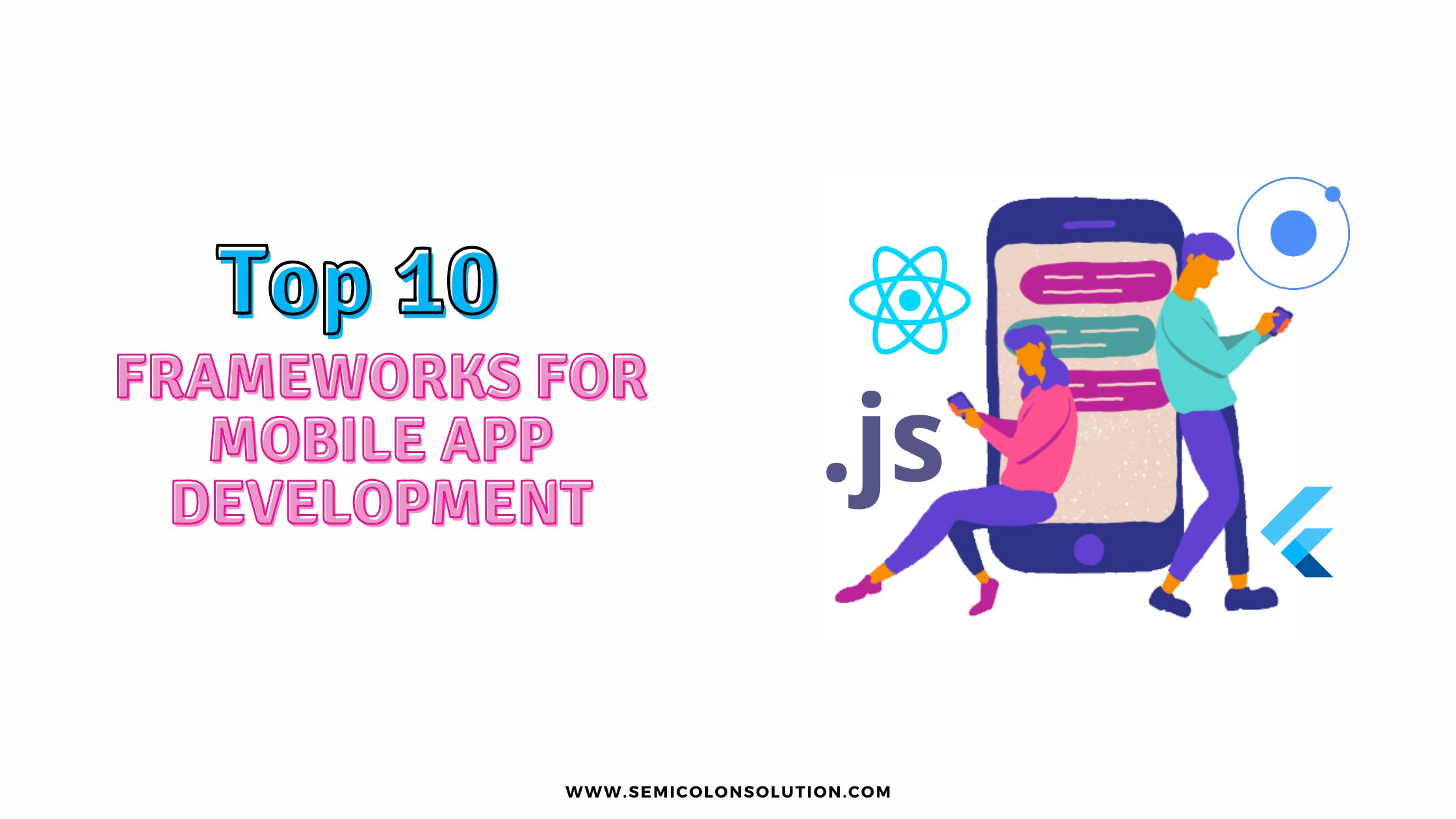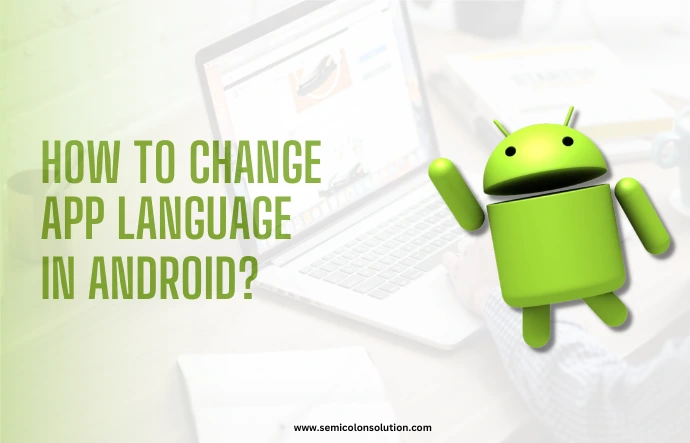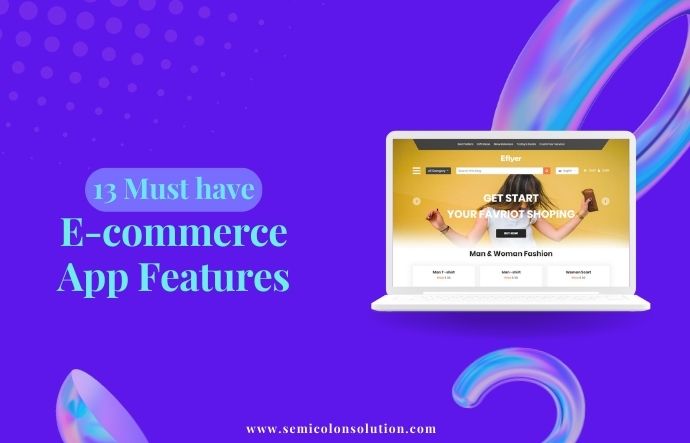Whether we want to do shopping, book tickets, order food, or send money to friends’ bank accounts without leaving our homes, Thanks to mobile apps we have been doing our every work at our fingertips.
Technology has made separate spaces in our life as we can’t finish our work and get the desired outcome without using mobile applications.
Considering this approach there are millions of applications created every year using several mobile app development frameworks.
So in this guide, we’re going to take a look at the best mobile app development frameworks, their types, which one should you choose, and more that you need to know.
So let’s get started from the basics.
What is a mobile app development framework?
Simply put, a Mobile app development framework is a set of pre-built functionalities and components that developers can use to create and optimize a mobile application very effectively.
It typically includes a code library, user interface elements, APIs, databases, and other services. By using these libraries and fundamental structures developers can create an application before the deadline without putting a single error.
This approach allows developers to speed up their development process. Common frameworks used for mobile app development include React Native, Ionic, Flutter, and Xamarin.
Each framework offers different benefits and features, so developers should choose the one that best fits their project needs and is capable to solve users’ problems.
Benefits of using the custom framework for app development
App development is a time, energy, and money-consuming process, but thanks to the app development framework which make this process are faster than it used to be.
1. Framework offers developers the ability to leverage pre-built components and modules that can be reused and integrated into new projects.
2. Using a custom framework for app development can reduce the chances of errors and bugs, since it is tailored specifically to the requirements of the application. This makes the code more reliable and easier to maintain.
3. One of the best benefits of using an app development framework is that it enhances the security of the mobile app and protects it from being affected by malicious actors.
4. Frameworks are designed to make maintenance and updating of the application code much simpler. This saves developers time and effort and allows them to focus on providing new features and functionality to the application.
Types of mobile app development frameworks?
1. Native App Frameworks: These frameworks are specifically used to develop an app for a particular operating system (OS), such as iOS or Android. Examples include Xamarin and React Native.
2. Cross-Platform App Frameworks: These frameworks allow developers to build apps for multiple platforms with a single codebase. Examples include Ionic and Flutter.
3. Hybrid App Frameworks: These frameworks allow developers to mix native code and web code in the same app. Examples include Apache Cordova and Adobe PhoneGap.
4. Web App Frameworks: These frameworks allow developers to build web apps that are optimized for mobile devices. Examples include Angular and Vue
List of best mobile app development frameworks
Now we landed up to the most important part of this article which is the best frameworks to use for mobile app development
1. React Native

React Native is the most popular open-source mobile application framework which is created by Meta (formerly Facebook) and released in 2015.
It’s based on React, a JavaScript library for building user interfaces, but instead of targeting the browser, it targets mobile platforms.
This means that you’ll be able to write mobile applications using React Native and the same code can be used for both Android and iOS.
With a large community and strong support, React Native has become one of the most popular frameworks for mobile app development and around 42% of developers have been using this technology to build an application.
This makes it easy to get help when you’re stuck, and it’s also a great way to stay up-to-date with the latest trends and technologies.
Key features:
- Open source technology and free to use
- Cost and time efficient
- The single code base for all platforms
- Requires low code
- Libraries are available
- Great support from the community
Apps based on Native:
- AirBNB
- Tesla
- Walmart
- Ubereats
2. Flutter
Flutter is a completely free open-source framework for mobile app development which is released by Google in 2013.
Flutter has quickly become one of the most popular development platforms for mobile applications as it allows developers to create highly customizable and expressive user interfaces for both Android and iOS applications.
The framework also provides tools for building efficient, reliable, and high-performing applications with a native look and feel.
Flutter has powerful tools for testing, debugging, and performance profiling and makes it easy to find and fix any problems in the code and ensure that the application runs smoothly and correctly.
The platform also includes a rich library of UI elements, making it easier to create beautiful user interfaces that suit the application’s purpose.
Read here to know more about the benefits of using Flutter for app development and its examples.
Key features:
- The modern framework that fulfills all modern requirements
- Full native performance
- Offers UI kits
- Cross-platform
- Largest community
- 2D rendering engine
Apps based on Flutter:
- Google pay
- CrowdSource
- Toyota and BMW
- Google Classroom
3. Sencha Touch
Sencha Touch belongs to a cross-platform app framework. Basically, it is a comprehensive HTML5 and javascript-based mobile application development framework created by Sencha Inc
It helps developers create mobile applications for various platforms, such as iOS, Android, BlackBerry, Windows Phone, and other mobile operating systems.
It offers a powerful and intuitive user interface, a wide range of themes, and UI components to design an application
Overall, Sencha Touch also offers support for various third-party services and features, therefore, it has become an ideal choice for developers who want to create modern, feature-rich, and interactive mobile applications.
Now let’s know what apps are built using this framework and its features.
Key features:
- Useful to manage a large amount of data
- Provides you analytics
- Holds hundreds of user extensions
- State-of-the-art Data-Driven Documents package (D3)
- Visual data representation
Apps based on Sencha Touch:
- Apple
- Adobe
- Microsoft
- Cisco
4. Corona SDK
When it comes to extensive user experience, Corona SDK would be the best framework for mobile app development.
Corona SDK is a full development kit that provides developers with the tools and features necessary to create innovative and engaging experiences for their users.
It offers an extensive library of APIs, libraries, and plugins that enable the development of mobile apps for both iOS and Android.
The SDK includes a variety of features such as a 3D engine, media playback, and augmented reality support, which allows for the creation of immersive user experiences.
Additionally, the SDK comes with a unified code base that enables developers to share code between both platforms, allowing them to develop their apps.
With the help of its powerful tools and features, Corona SDK can help developers bring their ideas to life with ease.
Key features
- Make the app lightweight and fast
- Several plugins for features are available
- Real-time testing
- Strong API support to integrate with any native library
- Better user experience
Apps based on Corona SDK
- Zip Zap
- Pktball
- Fun run 2
- The Lost City
5. Xamarin
After Flutter, Xamarin is the second most app development framework which is used by 144 companies in their tech stacks.
Xamarin is based on .NET platform and uses C# as the primary language. It allows developers to create native mobile apps for multiple platforms such as Android, iOS, and Windows by leveraging the same codebase.
It also offers an extensive library of APIs and UI components that make it easy for developers to effectively build a feature-rich, native mobile app that users will love.
This cross-platform mobile development framework offers several benefits to the developers including sharing business logic across multiple platforms, rapid development cycles, and access to native APIs that help them quickly identify and resolve issues so users can use applications without any complaint.
Key features
- Native performance
- Native UI controls
- No javascript, truly compiled code
- MVVM pattern
- C# libraries available
- Amazing support
Apps based on Xamarin
- Rumble
- DevRain
- Olo
- Samsviran
6. Native Script
The native script is a Javascript-based framework utilizing Angular and Typescript to provide cross-platform development solutions.
Just like other frameworks, Native script also allows developers to create native mobile apps for multiple platforms from a single codebase.
It has an extensive library of plugins and UI components that improves the accessibility and user experience of the application.
Due to its pre-built components and great support, it cut down development time and consumes less energy.
Some salient features
- Hot Module Replacement
- Simple to set up
- You can build animations, graphs, charts, and lists of rich apps
- Plugins and templates
Apps based on Native Script
- Strudel
- Daily Nanny
- Dwitch
7. Kivy
It is a completely visually appealing and cross-platform user interface toolkit that make it easy to create apps for multiple platforms, including Windows, Linux, macOS, iOS, and Android.
If you want to know the latest mobile app development framework, meet Kivy. Which is open-source for developing mobile applications and is based on the Python library.
It is built on top of OpenGL ES2 and if we said one of the best uses of Kivy, it is able to support multi-touch interactions which makes it a popular framework for creating game-like applications.
Its features
- Easy to learn
- Pur python libraries
- Low code development
- Easy to setup
- Easy to make multi-touch apps
Apps based on using Kivy
- EasyWeather
- Cointex
- Barly
- Panorama
- Rocket kite
8. Unity framework
If you are looking for a framework that helps you create a gaming app that can be played by users on their devices, Unity would be the right choice to go with.
The Unity framework is a powerful tool for creating interactive 3D and 2D experiences, from games to applications and more.
Its intuitive interface and drag-and-drop capabilities make it easy to learn and use. Unity also offers a wide range of features, such as a physics engine, real-time lighting effects, and a comprehensive asset library.
Features:
- Easy-to-understand architecture
- Unity Analytics
- Visual scripting
- Rendering pipeline options
- Asset System
Games based on Unity
- Amoung Us
- Monument Valley 2
- Cuphead
- Pokémon Go
9. Ionic
Ionic is a comprehensive open-source SDK (Software Development Kit) built on top of Angular, a popular JavaScript framework.
It enables developers to build native-like mobile applications using web technologies such as HTML, CSS, and JavaScript.
Ionic provides a wide range of tools and services that allow developers to easily create mobile applications that look and feel native on all major mobile platforms such as iOS, Android, and Windows. It also allows developers to easily integrate with popular device APIs and other services.
It also enables developers to take advantage of device features such as GPS, Bluetooth, and camera and use them in their apps.
This framework is also mostly used framework for mobile app development by creative developers.
Features
- Used in Cross-platform app development
- Intuitive UI components
- Rapid development time
- One of the best development platform
- Large audience base
Apps based on Ionic
- MarketWatch
- Sanvello
- Untappd
10. JQuery Mobile
There are so many cross-platform development frameworks available and now we also going to mention another framework which is JQuery Mobile.
This powerful framework includes web languages such as HTML, CSS, and JavaScript that allow developers to create user interfaces for mobile devices.
JQuery is also used to build websites and now you can use it to build an awesome mobile app.
It is also supportable for various operating systems like Mac OS, Windows, Blackberry, Firefox, and Kindle.
Features
- Javascript based framework
- Compatible with all OS
- Rapid development time
- Also used in web development
- Lots of libraries, plugins, and UI components are available
- Large audience base
Apps based on Ionic
- Globalize
- HospitalRun
- Dojo
- Appium
How to choose the right framework to develop an application?
We have discussed the best frameworks for mobile app development but the question arises which framework should you choose for your mobile application and even what would be a beginner’s choice?
So the choice of framework for building mobile applications for your business will depend on many factors.
But here is the list of some criteria which you need to consider before choosing the right framework for your application.
- First, check out the speed range of the framework you are choosing for.
- The chosen framework is capable to build all functionality you want to have in your app
- Does that framework have great support and community or forum so you can solve your problems?
- Check out its limitations and performance
- Do have the option to use libraries, plugins, and pre-built components
- Is it really suitable for your industry and requirements
- Is it compatible with all devices and OS?
Check all the given conditions and then go with the right app development framework.
It’s your turn
We have covered top-rated mobile app development frameworks with their own features and examples.
Now it’s your turn to choose the right framework for your next project. If you are looking for an agency that can help you deliver an application you have never dreamed of, feel free to contact us or hire us for app development services.
FAQs
1. What is the most used mobile app framework?
As you can see below the chart, due to the increasing demand for cross-platform technologies, Flutter and React Native is highly used frameworks by app developers.
Flutter and React Native has lots of libraries, functionalities, skillful developers, code scalability, and flexibility.
2. Which framework is best for hybrid app development
There are most frameworks are used for hybrid app development but if we take only a few out of them, Flutter, React Native, Xamarin, Kotlin, Phone gap, and Ionic are mostly used hybrid app development frameworks.
3. Which framework is best for android app development
Looking for the best framework for android app development, there are plenty of frameworks that provide an option for cross-platform functionality which means you can develop an app with a single base code that can be run on all OS or platforms.



